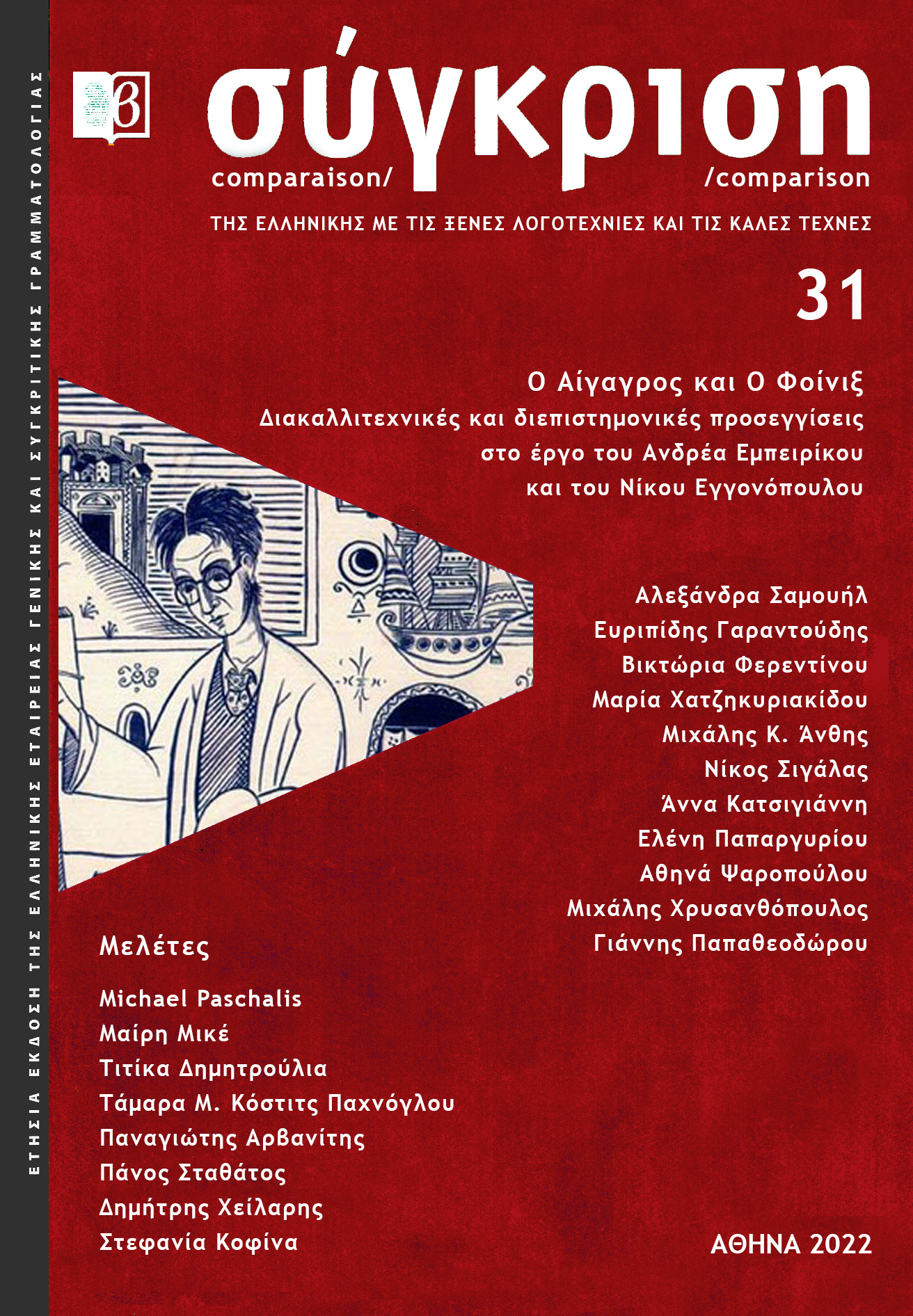ΠΑΝΑΓΙΩΤΗΣ ΑΡΒΑΝΙΤΗΣ, Ο Jean-Paul Sartre και ο Albert Camus στη μετεμφυλιακή Ελλάδα. Στοιχεία για την έμμεση πρόσληψη της ιστορικής τους διαμάχης (1952-1960)
Abstract
This paper examines aspects of the Greek reception of the historic confrontation between Sartre and Camus, which was to be decisively determined by the post-civil war polarization. It begins by recalling the 1952 quarrel that put a definitive end to their friendship, and then presents the powerful impact of their thought on the literary field of post-civil war Greece. Through the integration of evidence from literary reviews and journals, this study demonstrates the transformations caused by Sartre’s “turn” as a fellow traveler of the communist movement, considering that the Greek Left had previously adopted the “anti-existentialist offensive” of the French Communist Party. The highlighting of the intense reactions to both Camus’s emblematic visit to Athens in 1955 and his award of the Nobel Prize for Literature in 1957 aims to project the ideological antagonisms of the period in Greece into the framework of the Cold War conflict. Despite the fact that the relationship between Greek left intellectuals and Sartre the “existentialist” was often conflictual, the “uneasy friendship” between them at the beginning of the 1950s seems to evolve around 1960 into an unshakable “companionship”, while the consistently negative attitude of the pre-dictatorship Left towards Camus, combined with the latter’s fervent embrace by liberal intellectuals, suggests the following: Sartre and Camus as moral and intellectual leaders fulfill, in the historical context of the Cold War as well as in that of the post-civil war division in Greece, a pro-communist and an anti-communist prophecy for intellectuals, respectively.
Keywords: Sartre, Camus, existentialism, communism, Cold War, literary field, intellectuals, engagement.
Article Details
- How to Cite
-
Αρβανίτης Π. (2022). ΠΑΝΑΓΙΩΤΗΣ ΑΡΒΑΝΙΤΗΣ, Ο Jean-Paul Sartre και ο Albert Camus στη μετεμφυλιακή Ελλάδα. Στοιχεία για την έμμεση πρόσληψη της ιστορικής τους διαμάχης (1952-1960). Comparison, 31, 198–214. https://doi.org/10.12681/comparison.31105
- Issue
- Vol. 31 (2022)
- Section
- Articles

This work is licensed under a Creative Commons Attribution-NonCommercial-ShareAlike 4.0 International License.
Authors who publish with this journal agree to the following terms:
- Authors retain copyright and grant the journal right of first publication with the work simultaneously licensed under a Creative Commons Attribution Non-Commercial License that allows others to share the work with an acknowledgement of the work's authorship and initial publication in this journal.
- Authors are able to enter into separate, additional contractual arrangements for the non-exclusive distribution of the journal's published version of the work (e.g. post it to an institutional repository or publish it in a book), with an acknowledgement of its initial publication in this journal.
- Authors are permitted and encouraged to post their work online (preferably in institutional repositories or on their website) prior to and during the submission process, as it can lead to productive exchanges, as well as earlier and greater citation of published work (See The Effect of Open Access).



